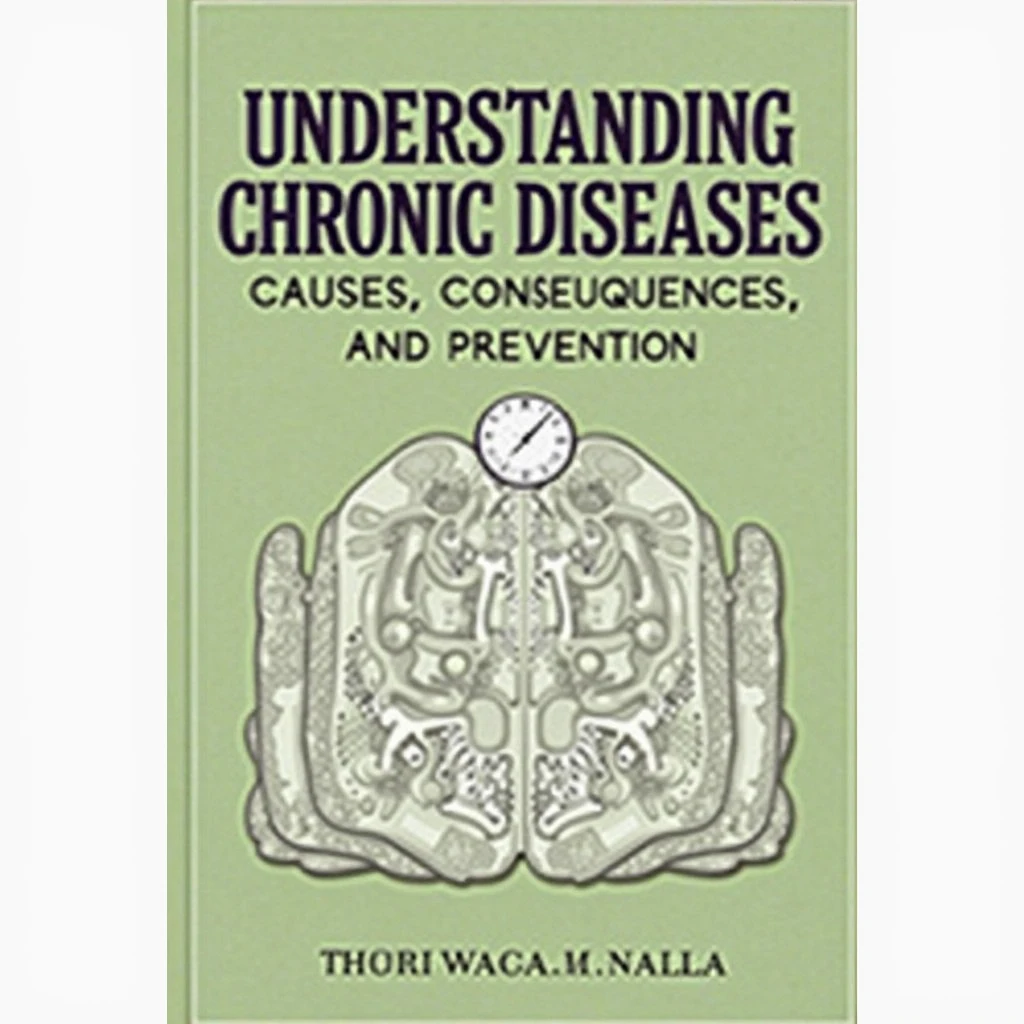Description
The digital age has transformed the way we communicate, work, and live, bringing both opportunities and challenges for mental health. As technology continues to evolve, it influences our emotional well-being, social interactions, and access to mental health resources. This comprehensive article explores the complexities of mental health in the digital era, examining the impact of social media, online therapy, digital distractions, and the role of technology in promoting mental wellness.
Introduction
In a world increasingly dominated by technology, mental health has emerged as a critical concern. The digital landscape offers unprecedented access to information and connectivity, but it also poses significant risks to emotional well-being. From the pressures of social media to the rise of teletherapy, the digital age presents a unique set of challenges and opportunities for mental health care.
This article will cover the following key areas:
- Understanding Mental Health in the Digital Era
- The Impact of Social Media
- Digital Distractions and Attention
- Online Therapy and Mental Health Resources
- The Role of Technology in Mental Wellness
- Cyberbullying and Online Harassment
- Digital Detox and Mindfulness
- Access to Mental Health Care
- Future Trends in Mental Health Technology
- Conclusion and Recommendations
Understanding Mental Health in the Digital Era
1. Defining Mental Health
Mental health encompasses emotional, psychological, and social well-being. It affects how we think, feel, and act, influencing our ability to handle stress, relate to others, and make choices. In the digital age, mental health is shaped by various factors, including technology use, social interactions, and access to information.
2. The Evolving Landscape of Mental Health
Historically, mental health has been viewed through a clinical lens, focusing on diagnoses and treatments. However, the rise of digital technologies has shifted this perspective, highlighting the importance of prevention, awareness, and holistic approaches to mental wellness.
The Impact of Social Media
1. Positive Effects of Social Media
Social media platforms can foster connection, support, and community. Some benefits include:
- Support Networks: Online communities provide spaces for individuals to share experiences and seek support.
- Awareness Campaigns: Social media raises awareness about mental health issues, reducing stigma and encouraging open conversations.
2. Negative Effects of Social Media
Despite its benefits, social media can negatively impact mental health:
- Comparison and Envy: Exposure to curated online identities can lead to feelings of inadequacy and low self-esteem.
- Cyberbullying: Victims of online harassment may experience anxiety, depression, and social withdrawal.
3. Research Findings
Studies indicate a complex relationship between social media use and mental health. While some individuals benefit from online communities, others may experience increased anxiety and depression linked to social media engagement.
Digital Distractions and Attention
1. The Attention Economy
In the digital age, attention has become a valuable commodity. Companies compete for our attention through notifications, advertisements, and engaging content, leading to:
- Shortened Attention Spans: Constant distractions can hinder our ability to focus and engage deeply with tasks.
- Information Overload: The sheer volume of information available online can lead to overwhelm and decision fatigue.
2. Mental Health Implications
The effects of digital distractions on mental health can be significant:
- Increased Anxiety: The pressure to stay connected and respond promptly can contribute to heightened anxiety levels.
- Decreased Productivity: Struggling to concentrate can impact work performance and overall satisfaction.
Online Therapy and Mental Health Resources
1. Teletherapy Growth
The rise of teletherapy has transformed mental health care:
- Convenience and Accessibility: Online therapy offers flexibility, making it easier for individuals to access mental health support.
- Variety of Platforms: Numerous apps and websites provide therapy options, catering to diverse needs and preferences.
2. Effectiveness of Online Therapy
Research suggests that online therapy can be as effective as in-person sessions for many individuals:
- Client Satisfaction: Many users report high levels of satisfaction with online therapy, appreciating the comfort and convenience it offers.
- Broader Reach: Teletherapy helps bridge gaps in access to care, particularly in underserved areas.
3. Challenges of Online Therapy
Despite its benefits, online therapy also has limitations:
- Technical Issues: Connectivity problems can disrupt sessions and hinder communication.
- Lack of Personal Connection: Some individuals may prefer face-to-face interactions and find it challenging to connect virtually.
The Role of Technology in Mental Wellness
1. Mental Health Apps
A plethora of mental health apps aim to promote well-being:
- Meditation and Mindfulness: Apps like Headspace and Calm offer guided meditations that help reduce stress and anxiety.
- Mood Tracking: Journaling and mood tracking apps encourage self-reflection and awareness of emotional patterns.
2. Wearable Technology
Wearable devices can monitor physiological indicators of mental health:
- Stress Management: Devices that track heart rate variability can help users identify stress triggers and manage anxiety.
- Sleep Monitoring: Sleep trackers provide insights into sleep patterns, promoting better sleep hygiene.
3. Online Support Groups
Digital platforms facilitate peer support and connection:
- Community Building: Online support groups provide safe spaces for individuals to share experiences and coping strategies.
- Anonymity and Accessibility: The anonymity of online forums can encourage participation from those hesitant to seek help in person.
Cyberbullying and Online Harassment
1. Understanding Cyberbullying
Cyberbullying involves using digital platforms to harass, threaten, or intimidate individuals, leading to:
- Emotional Distress: Victims may experience anxiety, depression, and a sense of isolation.
- Long-Term Effects: The impact of cyberbullying can lead to lasting emotional scars and difficulties in social relationships.
2. Preventive Measures
Addressing cyberbullying requires a collaborative approach:
- Education and Awareness: Schools and communities should implement programs to educate individuals about the effects of cyberbullying and promote empathy.
- Reporting Mechanisms: Digital platforms must provide clear reporting systems to address incidents of harassment effectively.
Digital Detox and Mindfulness
1. The Need for Digital Detox
As technology becomes ingrained in daily life, the concept of digital detox is gaining traction:
- Reducing Screen Time: Taking breaks from screens can help individuals reconnect with themselves and their surroundings.
- Improving Mental Clarity: A digital detox can enhance focus, creativity, and emotional well-being.
2. Mindfulness Practices
Incorporating mindfulness into daily routines can mitigate the negative effects of technology:
- Mindful Consumption: Being intentional about technology use can foster a healthier relationship with digital devices.
- Meditation and Reflection: Practices that promote present-moment awareness can reduce stress and improve overall mental health.
Access to Mental Health Care
1. Barriers to Access
Despite advancements in technology, barriers to mental health care persist:
- Stigma: Fear of judgment can prevent individuals from seeking help, particularly in communities with strong stigma around mental illness.
- Cost and Insurance: Financial constraints and lack of insurance coverage can limit access to mental health services.
2. Expanding Access through Technology
Technology offers solutions to improve access to mental health care:
- Online Directories: Platforms that connect individuals with mental health professionals can enhance access to care.
- Community Resources: Teletherapy and online support groups can reach individuals in remote or underserved areas.
Future Trends in Mental Health Technology
1. Artificial Intelligence in Mental Health
AI technologies are being integrated into mental health care:
- Chatbots for Support: AI-driven chatbots can provide immediate emotional support and direct users to appropriate resources.
- Predictive Analytics: AI can analyze data to identify individuals at risk for mental health issues, enabling early intervention.
2. Virtual Reality Therapy
VR therapy is emerging as a promising treatment option:
- Exposure Therapy: VR can simulate environments for individuals with phobias or PTSD, facilitating exposure therapy in a controlled setting.
- Relaxation and Mindfulness: VR experiences can promote relaxation and mindfulness, helping individuals manage anxiety and stress.
3. Integration of Mental Health into Overall Health Care
The future of mental health care involves integrating mental and physical health services:
- Holistic Approaches: Collaborative care models that address both physical and mental health are becoming more prevalent.
- Interdisciplinary Teams: Healthcare providers are increasingly working together to provide comprehensive care for individuals.
Conclusion and Recommendations
The digital age presents both challenges and opportunities for mental health. While technology can exacerbate issues such as anxiety and depression, it also offers innovative solutions for support and care. As we navigate this complex landscape, it is essential to prioritize mental well-being and develop strategies that promote healthy technology use.
Recommendations for Individuals
- Practice Mindfulness: Incorporate mindfulness techniques into daily routines to manage stress and enhance emotional well-being.
- Limit Screen Time: Set boundaries around technology use to reduce distractions and promote mental clarity.
- Seek Support: Utilize online resources and support groups to connect with others and access mental health care.
Recommendations for Policymakers
- Promote Mental Health Awareness: Implement campaigns to reduce stigma and educate communities about mental health issues.
- Invest in Digital Health Initiatives: Support the development of digital tools and resources that improve access to mental health care.
- Foster Collaboration: Encourage partnerships between mental health professionals, technology developers, and community organizations to enhance care delivery.
As we move forward in the digital age, understanding the interplay between technology and mental health will be crucial for fostering a healthier society. By embracing the potential of technology while remaining vigilant about its challenges, we can create a future where mental health is prioritized and supported for all individuals.




